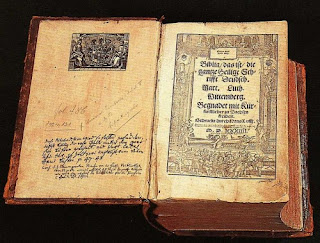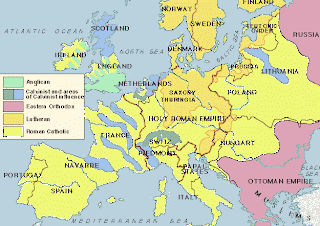THE WARTBURG CASTLE (OF EISENACH)
The Wartburg Castle is an important
piece of German history that traces its legend all the back to the 11th
century. Situated beautifully atop a 1,200-foot steep climbing over looking the
small town of Eisenach in central Germany. I’ve seen tons of pictures of this
castle and it is amazing to see how it has developed through the history of
Germany and how the country itself has developed throughout the life of this
beautiful castle.
-Foundation laid in 1068 by
Thuringian count, Louis the Springer, of Schauenburg.
-When he first saw the mountain, he
exclaimed “Wait, mountain—you shall bear a castle for me!”
-Brought
clay from his original home for the Castle to be built upon, so he could say he
truly built it on his own land
-The castle
went through multiple transitions of power and possession.
-The Weimar
eventually took possession of Wartburg at the beginning of the 15th
century, setting the castle up for it’s decline
-From the
1500’s until after the Napoleonic wars, the castle was set as a repair site and
abandoned from power
-During
Martin Luther’s exile from the Church, he sought shelter at the Castle
-Here, he
lived as The Knight George and lived quietly and peacefully within the castle
after his excommunication
-The
Wartburg is the site that Luther translated the New Testament into German
-Because of
its old age and rich history, the castle has been restored and renovated
numerous times
-Each
renovation and different efforts of construction bring about a new era of
building, slightly new modeling touches, and often even new drafts of old parts
of the castle
-Its
constant refuge of outsiders has grown the Wartburg into a well-known
pilgrimage within the German culture
From my
research, it is my understanding that the Wartburg is that type of monument and
historic site that you cannot pass up when visiting Germany. The amazing
pictures and setting that the castle rest upon makes this one of the most
intriguing sites I believe we’re going to visit. The forest and high mountain
scenery makes the setting around the castle look even more beautiful. Finally I
believe it will be a pretty breathtaking and awestruck feeling when we realize
that this was the site of Martin Luther’s Bible translation during his exile.
You just don’t get to be at or understand many parts of history that iconic,
you guys.











